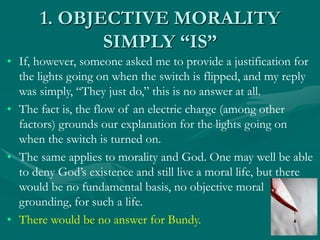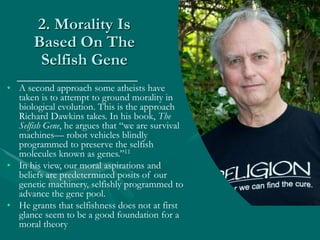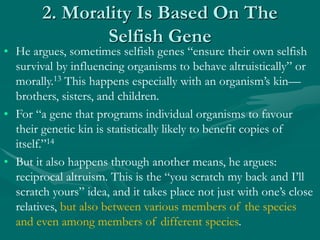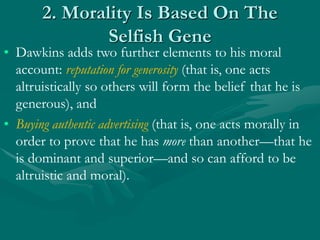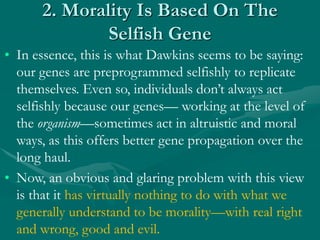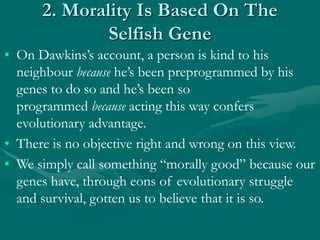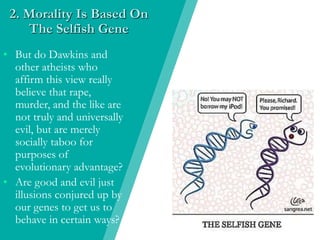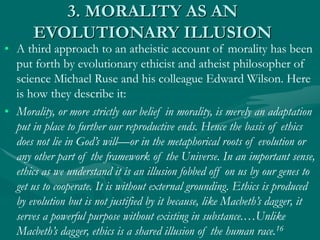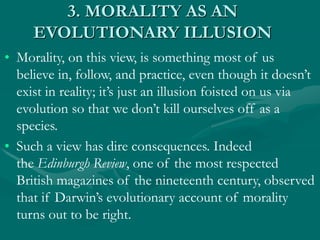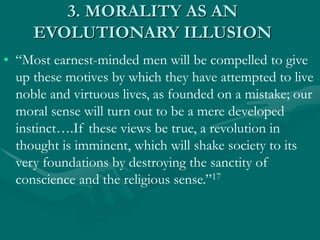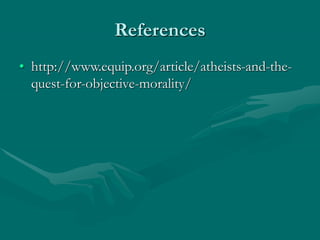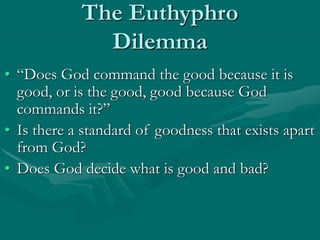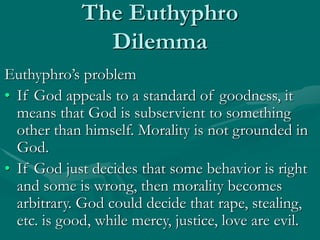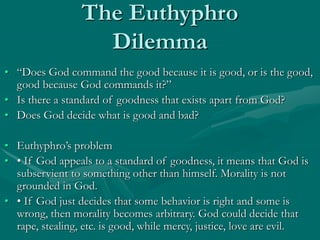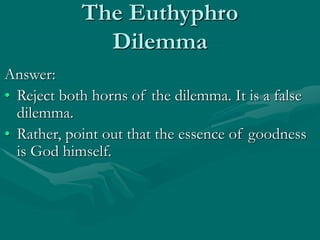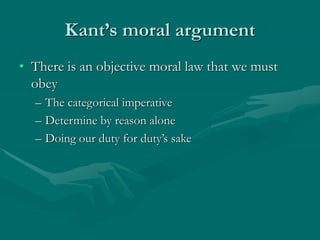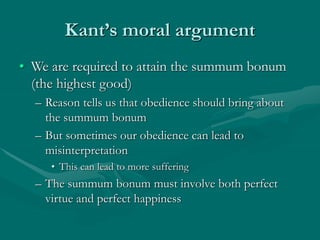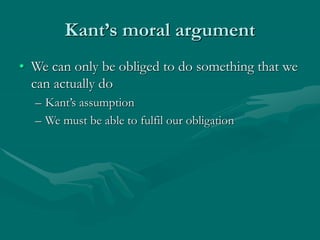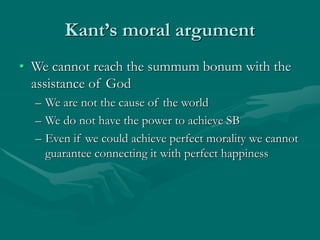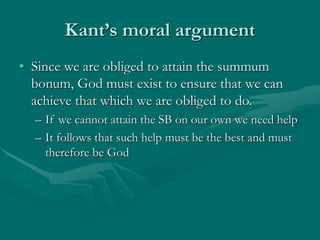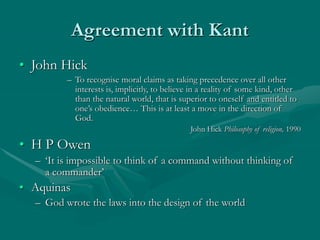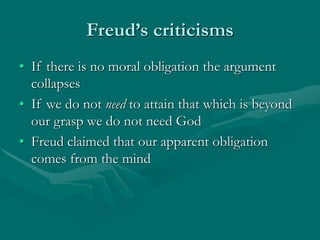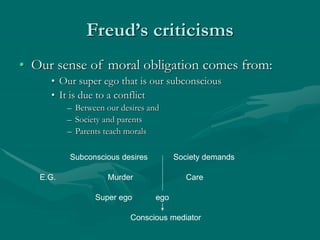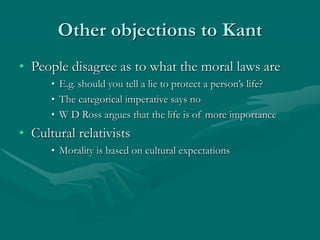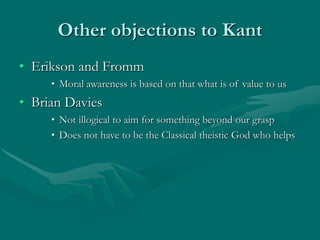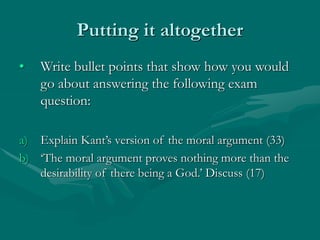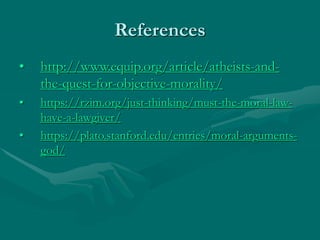The document discusses the moral argument that posits a connection between morality and the existence of God, emphasizing that objective morality necessitates a moral lawgiver. It critiques evolutionary explanations for morality and the dangers of subjective morality, using examples like the Ted Bundy case to highlight the consequences of denying a moral foundation. Additionally, it explores the Euthyphro dilemma and Kant's moral argument, ultimately asserting that the existence of God is necessary for grounding objective moral values.

![Moral Law Posits a Lawgiver
The eminent apologist Ravi Zacharias says:
• When you say there is evil, aren’t you admitting
there is good?
• When you accept the existence of goodness, you
must affirm a moral law on the basis of which
to differentiate between good and evil.
• But when you admit to a moral law, you must
posit a moral lawgiver.[3]](https://image.slidesharecdn.com/themoralargument-190131235715/85/The-moral-argument-2-320.jpg)
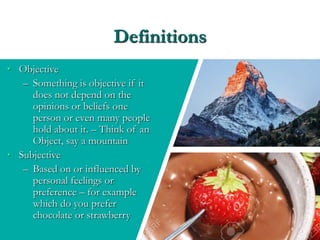
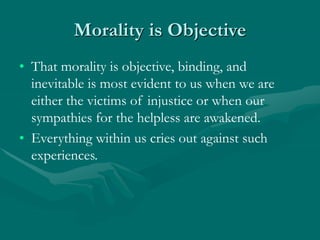
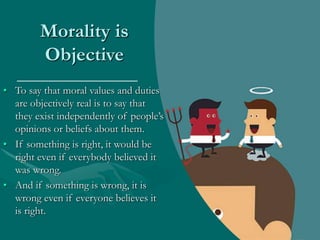


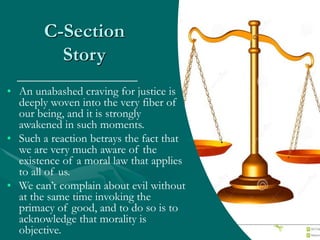

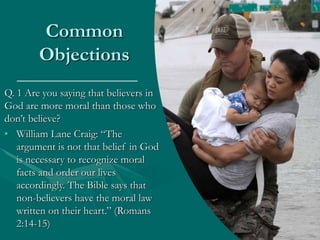
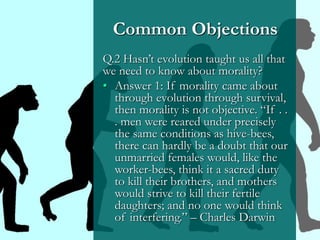
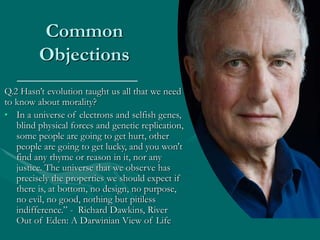
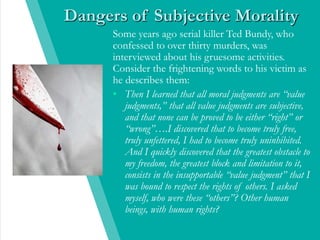
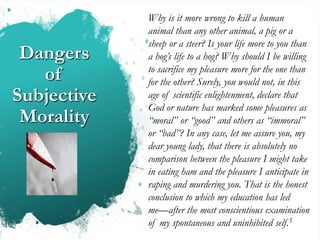
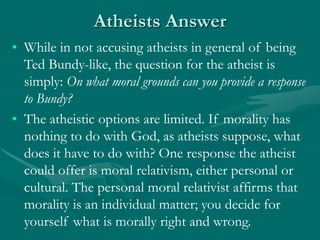
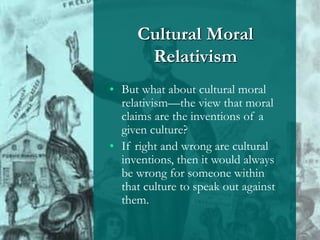
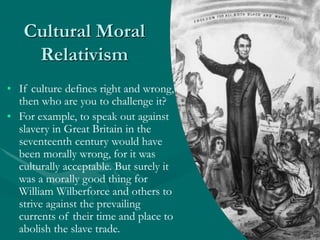
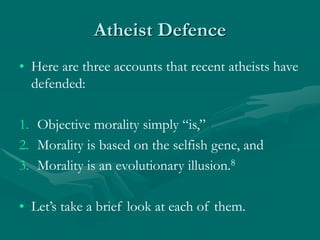
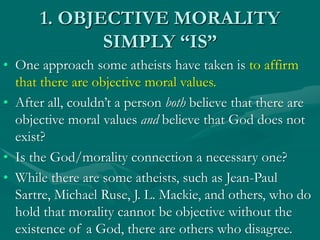
![1. OBJECTIVE
MORALITY SIMPLY “IS”
• One such person is atheist philosopher
Walter Sinnott-Armstrong. He puts the
point concisely: “In fact, many atheists are
happy to embrace objective moral values.
• Rape is morally wrong. So is
discrimination against gays and lesbians.
• Even if somebody or some
group thinks that these acts are not morally
wrong, they still are morally wrong.…
• [Agreeing that some acts are objectively
morally wrong] implies nothing about
God, unless objective values depend on
God. Why should we believe that they
do?”9](https://image.slidesharecdn.com/themoralargument-190131235715/85/The-moral-argument-20-320.jpg)
![1. OBJECTIVE MORALITY
SIMPLY “IS”
• But again the question arises: What grounds moral values?
Sinnott-Armstrong answers this way:
• “What makes rape immoral is that rape harms the victim in
terrible ways… It simply is [immoral].”10
• I can wholeheartedly believe that the lights in the room will
turn on after I flip the light switch without any
understanding of electricity. I can still function well in
society, going from place to place, flipping light switches and
never even entertaining the idea that electricity is involved in
the process of causing the lights to turn.](https://image.slidesharecdn.com/themoralargument-190131235715/85/The-moral-argument-21-320.jpg)
